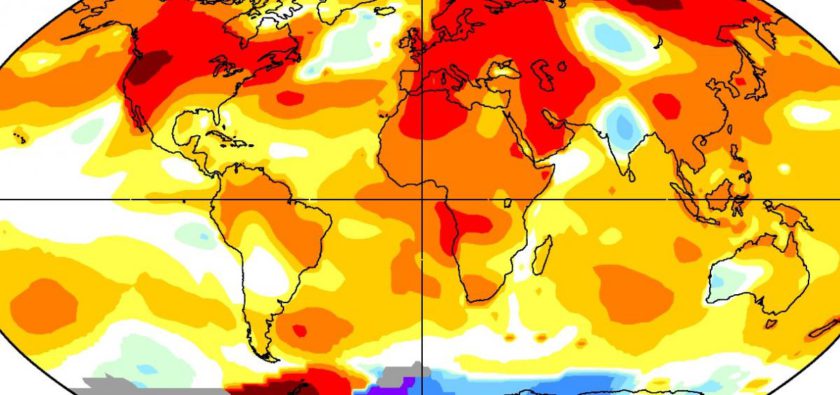Climate Change is perhaps the greatest challenge ever faced by our species.
You might have seen the various media articles that have been highlighting a new study that flags up just how dire things have now become. For example the Guardian article titled “Critical measures of global heating reaching tipping point, study finds” flags it up and spells it out. What is perhaps a tad disappointing is that many of the media outlets quite rightly report the content, but don’t actually link you to the study or the associated press release, so let’s correct that and go directly to the alpha source.
Oxford Academic BioScience: World Scientists’ Warning of a Climate Emergency 2021
Published yesterday, July 28, 2021, it contains an update for a 2019 paper.
It opens as follows …
In 2019, Ripple and colleagues (2020) warned of untold suffering and declared a climate emergency together with more than 11,000 scientist signatories from 153 countries. They presented graphs of planetary vital signs indicating very troubling trends, along with little progress by humanity to address climate change. On the basis of these data and scientists’ moral obligation to “clearly warn humanity of any catastrophic threat,” they called for transformative change. Since the article’s publication, more than 2,800 additional scientists have signed that declaration of a climate emergency; in addition, 1,990 jurisdictions in 34 countries have now formally declared or recognized a climate emergency.
But …
Yes, a “But” …
…there has been an unprecedented surge in climate-related disasters since 2019, including devastating flooding in South America and Southeast Asia, record shattering heat waves and wildfires in Australia and the Western United States, an extraordinary Atlantic hurricane season, and devastating cyclones in Africa, South Asia, and the West Pacific. There is also mounting evidence that we are nearing or have already crossed tipping points associated with critical parts of the Earth system, including the West Antarctic and Greenland ice sheets, warm-water coral reefs, and the Amazon rainforest.
In other words, two years after their dire warning, things are becoming even more dire.
This of course is a message that is not for the public, but instead is designed to target decision and policy makers attending COP26 that will be held in Glasgow on November.
The message is stark, bold, and clear – If you don’t take radical decisive and meaningful action now then we are seriously f**ked.
That’s not somebody expressing an opinion. It is a vast number of subject matter experts stating an evidence-based fact.
The silver lining here is that we can still take meaningful decisive steps, it is not too late.
Highlights
Out of the 31 variables that we track, we found that 18 are at new all-time record lows or highs
In the context of climate change, the words “record breaking” are really not the words you would ever wish to hear, and yet alas, they have become so common that the impact is lost.
They list the details. You don’t need me to list it all out, but I have included some of the main measurement below.
The essence of it all is this (to use their own words in the published paper) …
The updated planetary vital signs we present (figures 1 and 2) largely reflect the consequences of unrelenting business as usual … priorities must shift toward immediate and drastic reductions in dangerous short-lived greenhouse gases, especially methane.
They then spell out what is needed.
(Taps microphone) … “Hello, Hello, is this thing on, can anybody going to COP26 hear me?“
It’s not yet too late, but it soon will be.
Further Reading
- Oregon State University: Press Release: Earth’s vital signs worsen amid business-as-usual mindset on climate change.
- BioScience: World Scientists’ Warning of a Climate Emergency 2021
Climate-related global human activities
Time series of climate-related responses
Project website
The World Scientists’ Warning of a Climate Emergency paper (Ripple et al. 2020) now has more than 13,900 signatories, and they continue to collect signatures from scientists.
To sign or learn more, visit the Alliance of World Scientists website at https://scientistswarning.forestry.oregonstate.edu.
